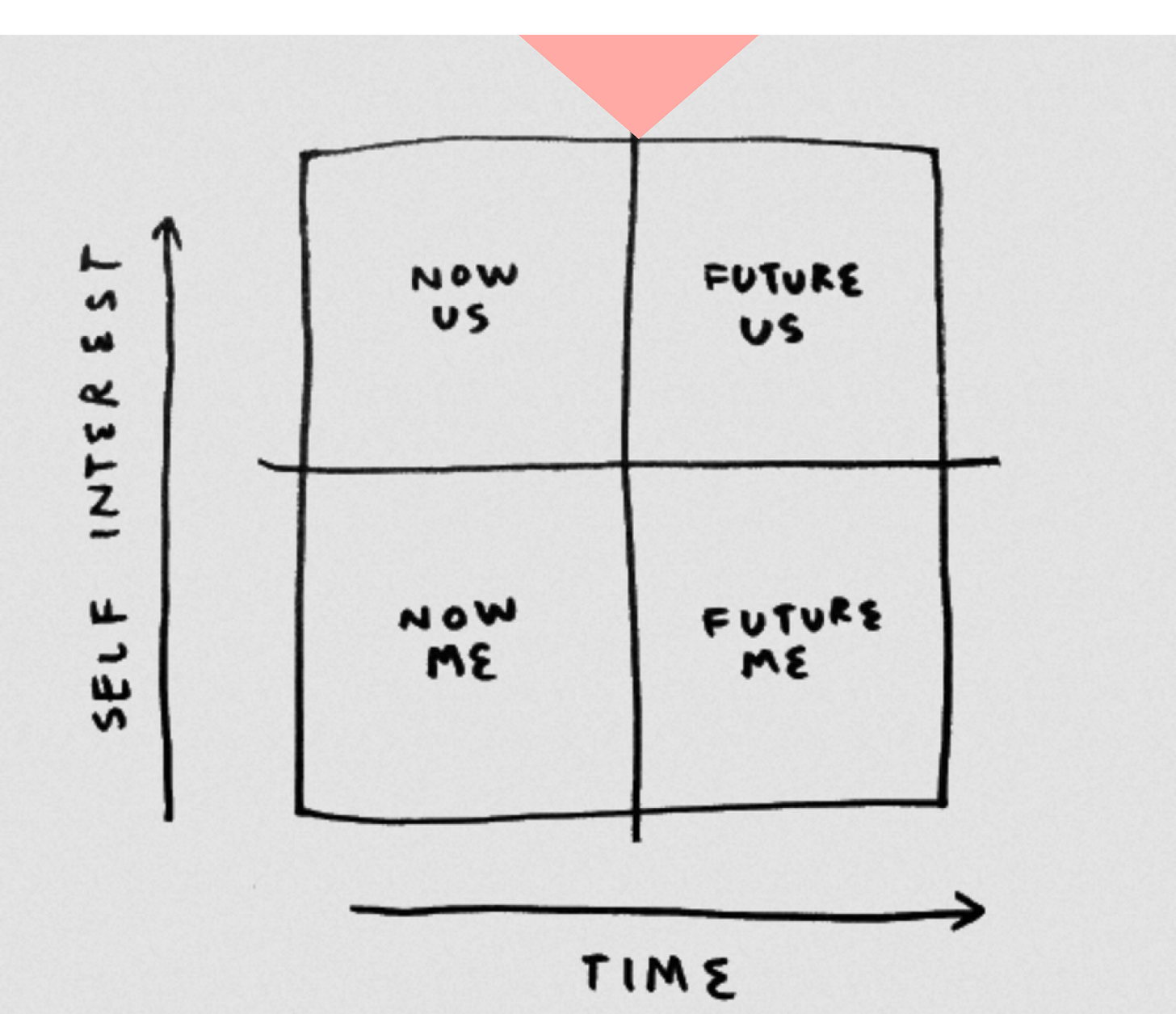#001 ✰ Let's build our future
A book • A bento • A future beyond financial maximization
Good day dear readers! I hope this message finds you well and rested, still high on chocolate.
I just finished a book I’d highly encourage you to read: This Could Be Our Future, by Yancey Strickler, co-founder of Kickstarter. “A manifesto for a more generous world”. The title says it all, and the book stays true to it.
it resonated because
you get to learn things.
for instance, did you ever noticed the no-left-turn hidden default in America’s urbanism : coffee shops on the right side of morning traffic, groceries stores & restaurants on the right side of evening traffic? Or did you know that credit cards became mainstream in the 70s (in America) as a new way to compensate workers for their increasing productivity : instead of being paid money, they started borrowing with interest. Pay raises became… debt!
you aren’t just told that the world is gonna hit a wall, so better hide in the wood and wait for apocalypse to knock at the door (or any similar offer).
but instead, you feel you can be part of the solution, starting now (Yancey’s a do-er, he built Kickstarter).
you are invited to observe, understand and take action through a new, tangible framework (see his Bento box approach below). On a personal and business level, expanding beyond one self, immediate interest.
[bonus] this is a reminder that major changes take 30 years, so you’d better get ready for a marathon - a chance I love endurance sports :)
snapshots I want to remember… and that might inspire you :)
Because the more you have of something, the less more of it means to you.
For the past hundred years, we’ve measured value through a metric called gross domestic product (GDP). GDP tracks how much money businesses, consumers and the government spend each quarter in a given country. […] According to GDP, then, the ideal citizen would drive an SUV, have cancer (chemotherapy can be very GDP-Positive), be getting a divorce, and eat our every night. […] If we all lived this way, GDP would skyrocket.
Financial maximization seems locked into place. […] But even it was once new.
When [change XYZ happened], there was no celebration. There was resistance. […] Financial maximization is to value what bloodletting was to medicine: the most advanced answer of its time, but not the final answer.
For my three-year-old son, seeing an electric car charging is normal. For his forty-year-old father, it’s novel. […] It’s the same for all of us who have grown up in a world of financial maximization. It feels like this song has been playing forever, but it hasn’t. That’s just how things were when we got to the party.
Change happens in response to a crisis. […] Without the disease, there’s no need for the cure.
Future looks uncertain, and we’re currently locked at home. Seems like a pretty good time to start turning this worry of ours into a momentum, and potentially reading this essay can help.
Lisbon friends, reach out to me directly for the copy :) You can also follow Yancey on his Bentoism journey.
Happy reading and happy Tuesday!
Mathilde



